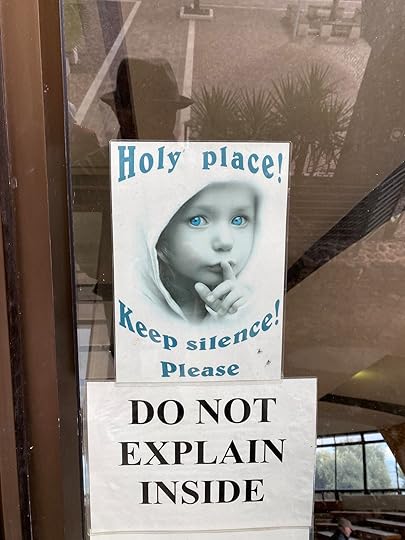He Came Preaching the Pardon of God

Thanks for reading Tamed Cynic by Jason Micheli ! Subscribe for free to receive new posts and support my work.
We’re in the twilight of Lent, a time every year when Christians— preachers especially— wrestle in earnest with the question at the heart of the Church’s faith, “Why was Jesus Christ crucified?”
The Apostle Paul says we all have the Law tattooed on our hearts. We just can’t help ourselves. We’re hard-wired to think in terms of merit and demerit, earning and deserving, cause and effect. It’s not surprising, therefore, that just as we’re hard-wired to want a preacher to exhort us in Jesus’s name, we also want a preacher to explain to us the reason for his death. The language of the Law is not imprecise. Any account, on God’s side of the ledger, that necessitates the crucifixion— God’s honor, for example— makes the Law almighty over the God who has told us he is slow to anger, rich in mercy, and abounding in steadfast love. Even if you’ve never been to seminary, you know what the Church has termed (with an appropriate amount of hedging) “atonement theories.”
Jesus paid it all, the hymn sings. In Christ alone, “the wrath of God was satisfied” a contemporary song summaries the old, old story. At least the roadside signs and Christian kitsch are more honest about the transactional nature of these theories, reducing the Gospel story to a math equation, “1 cross + 3 nails = 4given.” Stanley Hauerwas often quips about Easter, “If you had an explanation for the resurrection, you should worship that explanation not Jesus Christ.” Likewise, if there’s an eternal law which requires Jesus to solve the roadside equation, then we should worship that all-determinative law rather than Jesus or the other members of the Trinity. Luther called such explanations of the crucifixion “covering the cross with roses,” for they hide the brute and immediate fact that Jesus dies on the cross because we killed him.
Perhaps more critically, “theories” of atonement that make the cross a legal necessity on the way to divine pardon ignore the clear testimony of the evangelists in the Gospels.
Jesus doesn’t die so that God can forgive us.Jesus comes proclaiming the forgiveness of God.Christ preaches the pardon of God from the very start of the Gospel— hell, this is why we killed him!

In a justly famous sermon, “Jesus Died for You,” the theologian Gerhard Forde quickly summarizes the various atonement motifs at work in the history of the Church. He considers especially the most prominent theme in Christian interpretation, Substitution. Hewing close to his text, Forde says:
“All we need to do is to look carefully at what actually happened…“God didn’t have to be paid to forgive, but announced forgiveness through Jesus to begin with. But that is when the trouble starts. For we would not have it… we don’t need elaborate theories or doctrines of the atonement to see why his death is for us. We lay hands on him and put him to death. And he does not stop us.”
In other words, Jesus dies for us not in the sense of a divinely necessary transaction that somehow actualizes an eternal, unchanging attribute of God. Jesus dies for us in two important and indicting ways. Jesus dies because of us— by our hands. Jesus dies for us; that is, Jesus allows us to kill him for that is the only way in which we will receive him. Forde’s sermon echoes the very first Christian sermon, Peter’s preaching on Pentecost. This God whom we killed, Peter preaches, God gave him back to us, raising him from the grave. The preaching of Peter, who could probably still smell the charcoal fire around which he thrice denied Jesus, will not allow us to lay the blame for Jesus’ death elsewhere than our own hands.

Christ’s death and resurrection triumph over Sin, Death, and the Devil, then, because those are the Powers which conscripted us in to the original of all sins, the rejection of the pardoning God.
The explanation for the death of the incarnate God by the most ungodly of means is simple. The explanation is not eternal but it is every bit as mysterious. The reason for the death of Jesus is that, in him, God came preaching the unconditional forgiveness of sins for sinners who do not deserve it, and we killed him for it. He bears our sins in his body— actually. “The liberals in the Church are right,” Forde writes, “God is love; God is merciful. They just do not see that this is why we must kill him.” Forgiveness, full and free, with no strings attached is just as dangerous and criminal as robbery or murder or sedition. It cannot be allowed. It shatters all order, offends all morality, and smashes every system of justice.
In his work, Atonement as Actual Event, Forde offers a grisly analogy to clarify the meaning of Christ’s sacrifice on the cross. Imagine, Forde writes:
The answer to the question “Why was Jesus crucified?” is Jesus. He is his own explanation.
“A child is playing in the street. A truck is bearing down on the child— maybe the driver is simply a bad driver, maybe the driver is a reckless driver, maybe the driver is drunk. Suddenly a man throws himself in the path of the truck, saves the child, but is himself killed in the process…
It would be all too easy to identify ourselves with the more or less innocent child playing in the street and to look on the sacrifice as a sacrifice that averts our death. To make the analogy work properly, however, we must say that we are not the child playing in the street. We are the driver of the truck. If anything, the child playing in the street is our neighbor— maybe a neighbor so close they live in the same house as us or share the same bed with us. The child in the story is not us. We are the driver of the truck.
Suddenly, there is the someone who throws himself in our unheeding way and is crushed against the front of our machine…
Jesus is the one splattered against the grill of your truck who comes back to you to say, “Shalom!””
He is the one in whom God did God to us. He did God’s mercy and forgiveness to us. He bore relentless witness to it; therefore, he had to die. And not just die, we thought, his reckless message had to be hammered into oblivion.
Share Tamed Cynic by Jason Micheli
 Read Tamed Cynic by Jason Micheli in the new Substack appNow available for iOSGet the app
Read Tamed Cynic by Jason Micheli in the new Substack appNow available for iOSGet the app
Jason Micheli's Blog
- Jason Micheli's profile
- 13 followers



